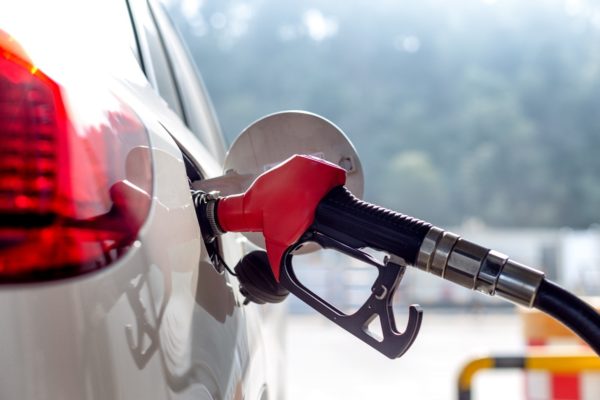CNG station is designed to refuel motor vehicle tanks with compressed natural gas, which is commonly used as an alternative to traditional fuels such as gasoline (petrol) and diesel.
According to recent scientific research, over 30% of global CO2 emissions come from the transportation sector, with road transportation accounting for over 70% of emissions. Since road transport is a main source of pollution, it is urgent to reassess our habits and introduce alternatives that would improve air quality and quality of life.
With the rise in fuel prices, there has been an increase in CNG vehicles. However, besides reducing costs, CNG vehicles are also a good option for fuel types when adhering to environmental measures. Nowadays, people want to explore CNG vehicles, reduce carbon dioxide emissions, and keep up with the rising monthly fuel prices.
What are CNG stations?
CNG stations are facilities where compressed natural gas (CNG) is stored and distributed to vehicles that use this alternative fuel. At CNG stations, vehicles can refill their tanks like gasoline or diesel cars fueled at traditional gas stations. CNG stations are key to the infrastructure supporting the use of CNG vehicles, providing drivers with access to refueling options beyond conventional gasoline and diesel fuels.
At Macel Plin, one of the leading providers in the alternative fuels sector, CNG stations are organized according to specific classifications for better efficiency and adaptability to different types of vehicles.
The key division is between stations with and without crew. Crew stations offer customers support and assistance from trained staff during the refueling process, which is particularly useful for drivers who may lack experience with CNG systems or require additional help. Stations without crew allow drivers to conduct the refueling process independently, providing a quick and convenient service without human supervision.
CNG stations are also classified according to the types of nozzle attachments used to ensure optimal compatibility with various vehicles. The standard NGV1 attachment is used for personal vehicles, while the more advanced NGV2 attachment is employed for heavy-duty vehicles such as trucks, buses, and vehicles with larger tanks.
This classification provides the best possible service to all customers, regardless of the type of vehicle they drive or their needs during the refueling process.
Increase in the number of natural gas vehicles
According to a recent report by the International Energy Agency, the number of vehicles using natural gas is expected to reach 25 million by 2030. This growth signifies a significant increase compared to the 22.5 million vehicles recorded in 2018. The increase in adoption can attribute to the advantages of compressed natural gas (CNG) over traditional fuels.
Advantages of CNG
- Environmental sustainability: CNG has cleaner combustion than traditional fuels, reducing emissions of harmful gases such as CO2 and nitrogen oxides. Therefore, it is a popular choice that reduces air pollution and greenhouse gas emissions.
- Economy: CNG vehicles have lower fuel costs than diesel fuel or gasoline vehicles. Natural gas prices are usually more stable than prices of traditional fuels, which can result in savings for public transportation, commercial fleets, and private vehicles. For example, if the average consumption of a vehicle is 8l/100 km of gasoline, when switched to LPG, consumption would be around 10l/100 km of gas. However, if switched to CNG, consumption would be 5.5 kg/100 km of methane. The savings by switching to CNG are evident.
- Safety: In the event of a crash, CNG cylinders are less dangerous than gasoline and diesel tanks due to their size, structure, and position within the vehicle. These cylinders have safety devices that release gas if the pressure or temperature exceeds normal levels. The ignition temperature of CNG is 600⁰C, which is higher than gasoline (320⁰C) and diesel (285⁰C). This means that CNG vehicles are less prone to ignition under any circumstances. In case of leakage, CNG is lighter than air, meaning it will disperse into the atmosphere, unlike gasoline or diesel which collect on the ground and pose a fire hazard.
- Lower maintenance costs: CNG engines typically require less maintenance due to cleaner combustion and fewer harmful substances. This can result in reduced service costs and longer vehicle lifespans.
- Engine longevity: Using CNG can extend the life of a vehicle’s engine due to less corrosion and reduced wear on internal engine components.
Infrastructure in Europe and legislative framework
Directive 2014/94/EU of the European Parliament requires the development of networks of refueling stations for vehicles with alternative fuels by the end of 2025. This initiative shows that using natural gas in transportation is a step towards environmental protection and a strategy to strengthen the economy and energy supply security.
There are already 3,500 compressed natural gas (CNG) stations in Europe, with varying numbers of stations in different countries. Serbia leads with 43 stations among Croatia’s neighboring countries, followed by Hungary with 21 and Slovenia with 6 such stations. Croatia has seen an increase in CNG stations, with existing ones in Zagreb, Rijeka, and Slavonski Brod.
The growing popularity of CNG stations
The use of CNG in transportation is experiencing significant growth year by year, with the number of vehicles increasing by around 30% annually. This growth outlook shows that awareness of environmental issues and economic sustainability are the main drivers for transitioning to alternative fuels such as compressed natural gas (CNG).
In light of global challenges related to climate change and reducing emissions of harmful gases, investment in infrastructure and technology supporting the use of CNG in transportation is becoming increasingly important. Overall, compressed natural gas represents a key component in the transition to a more sustainable future of transportation.
A new era is surely coming, but we believe CNG stations have a future alongside LNG stations.
Macel Plin d.o.o. specializes in designing, constructing, and managing CNG stations and provides 24/7 maintenance and services. For any inquiries, feel free to contact us.


 Hrvatski
Hrvatski